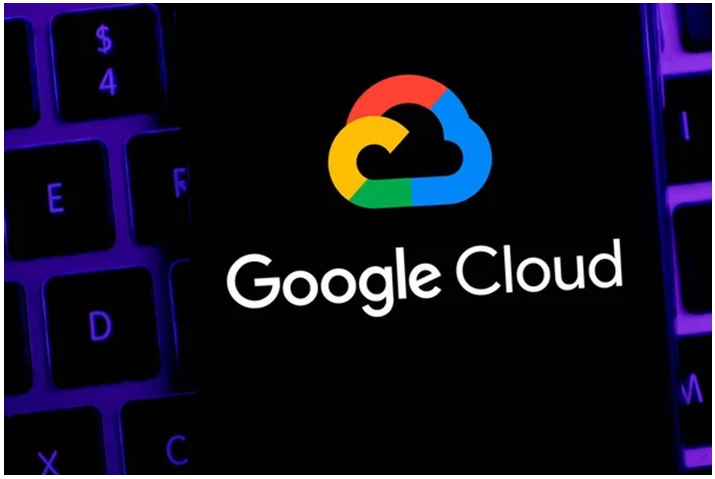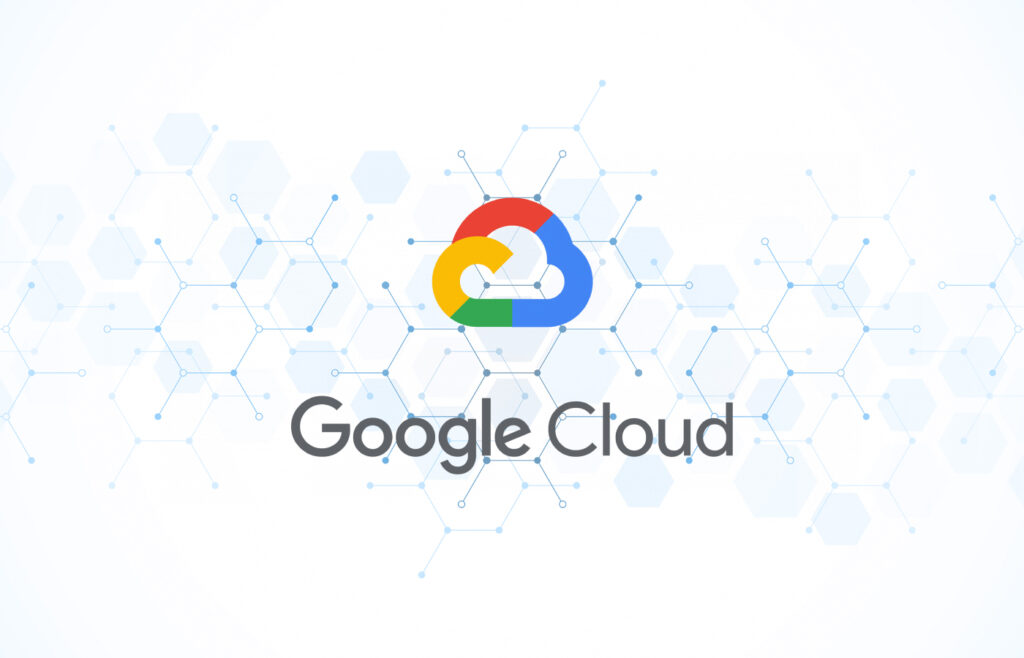As cloud computing continues to revolutionize the way businesses operate, Google Cloud Platform (GCP) has emerged as one of the most powerful and versatile players in the industry. With its robust infrastructure, intelligent analytics, and developer-friendly tools, Google Cloud is empowering organizations across the globe to innovate, scale, and operate with agility.

In this comprehensive guide, we’ll break down everything you need to know about Google Cloud – from its core benefits and key features to practical use cases that illustrate its real-world value. Whether you’re a startup exploring cloud migration or an enterprise architect looking for a reliable hybrid solution, this article has you covered.
What is Google Cloud?
Google Cloud Platform (GCP) is a suite of cloud computing services provided by Google, offering infrastructure as a service (IaaS), platform as a service (PaaS), and serverless computing environments.
Launched in 2008, Google Cloud has rapidly evolved, becoming one of the top three public cloud providers in the world. GCP powers popular services like Gmail, YouTube, Google Maps, and Google Search, ensuring proven reliability and performance.
🔗 Learn more from the official site: https://cloud.google.com
Key Components of Google Cloud
Google Cloud is composed of multiple services and products categorized into different domains:
1. Compute
- Google Compute Engine (GCE): Scalable virtual machines.
- Google Kubernetes Engine (GKE): Managed Kubernetes cluster service.
- App Engine: Platform-as-a-service (PaaS) for application deployment.
- Cloud Functions: Serverless functions to run code in response to events.
2. Storage & Databases
- Cloud Storage: Object storage with high availability.
- Persistent Disks & Filestore: Block and file storage options.
- BigQuery: Serverless, highly scalable data warehouse.
- Cloud SQL / Firestore / Spanner / Bigtable: Managed relational and NoSQL databases.
3. Networking
- Virtual Private Cloud (VPC)
- Cloud Load Balancing
- Cloud CDN (Content Delivery Network)
- Cloud Interconnect & VPN
4. AI & Machine Learning
- Vertex AI: Unified platform for AI model development and deployment.
- AutoML: Train high-quality models with minimal ML expertise.
- Natural Language API, Vision AI, Translation API
5. Data Analytics
- BigQuery
- Dataflow
- Dataproc
- Pub/Sub for messaging
6. Developer Tools
- Cloud SDK
- Cloud Shell
- Cloud Source Repositories
- Cloud Build & Container Registry
Top Benefits of Google Cloud
1. Scalability & Flexibility
GCP allows businesses to scale resources up or down based on demand. Whether you’re handling a sudden traffic spike or expanding globally, GCP can adapt without infrastructure bottlenecks.
2. Global Network Infrastructure
Google Cloud uses the same global fiber network that powers Google’s own services. This results in low latency, high availability, and unmatched performance.
📍 Did You Know? Google Cloud operates in over 200+ countries with 38 cloud regions and 100+ zones. Explore regions
3. Cost Efficiency
GCP’s pricing model is based on per-second billing and sustained use discounts. This means you only pay for what you use—no more, no less.
4. Security at Scale
Google employs more than 1,000 security experts and offers security features like:
- Data encryption at rest and in transit
- Identity and Access Management (IAM)
- DDoS protection
- Security Command Center
5. AI & Machine Learning Innovation
Google is a leader in artificial intelligence. GCP gives you access to state-of-the-art ML tools like TensorFlow, AutoML, and Vertex AI for building smarter applications.
6. Open Source and Hybrid Cloud Support
Google Cloud supports Kubernetes, Istio, and Anthos for hybrid and multi-cloud deployments, giving developers flexibility without vendor lock-in.
7. Sustainability
Google Cloud is the cleanest cloud in the industry. Since 2017, Google has operated its data centers on 100% renewable energy.
🌱 Learn more: https://cloud.google.com/sustainability
Key Features of Google Cloud
1. BigQuery – Data Warehousing
Analyze terabytes of data in seconds with BigQuery’s lightning-fast processing engine and SQL-like syntax.
2. App Engine – Easy App Hosting
Deploy web apps without managing the underlying infrastructure. Ideal for rapid development and testing.
3. Cloud AI APIs
Ready-to-use APIs for:
- Speech-to-Text
- Text-to-Speech
- Vision (OCR, face/object detection)
- Translation
4. Anthos – Hybrid Cloud
Run Kubernetes workloads anywhere — on-premise or in other clouds — using Anthos. Great for enterprises that need a hybrid environment.
5. Security Command Center
Monitor your GCP assets for misconfigurations, vulnerabilities, and threats — all from a single dashboard.
6. Cloud Build & CI/CD
Build, test, and deploy applications at scale using GCP’s CI/CD pipeline tools.
Popular Use Cases of Google Cloud
1. Data Analytics & Business Intelligence
With tools like BigQuery and Looker, organizations can run complex analytics and create visual dashboards to inform business decisions.
2. Machine Learning & AI
Develop and deploy ML models with minimal infrastructure using Vertex AI or pre-trained APIs. Great for personalization, recommendation engines, and automation.
3. Website & App Hosting
From static websites to complex apps, GCP provides secure, scalable hosting via App Engine, GKE, or Compute Engine.
4. Gaming Infrastructure
Game developers use Google Cloud for global scaling, matchmaking, player analytics, and multiplayer backend logic.
5. Video Streaming & Content Delivery
With powerful networking, low latency CDN, and high availability zones, GCP is an ideal backend for video streaming platforms.
6. E-commerce Platforms
Retailers benefit from cloud-native scalability, AI-powered recommendations, fraud detection, and demand forecasting.
7. IoT Applications
Manage and analyze data from millions of devices with Google Cloud IoT Core.
Industries Leveraging Google Cloud
1. Healthcare
Hospitals and research organizations use GCP for:
- Secure patient data storage (HIPAA compliant)
- AI-assisted diagnostics
- Genomics processing
2. Finance
Banks and fintech companies leverage:
- Real-time fraud detection
- Scalable infrastructure for trading platforms
- Regulatory compliance
3. Retail
Retailers use GCP for inventory management, customer analytics, and supply chain optimization.
4. Media & Entertainment
Video rendering, live streaming, and personalized content delivery are enabled through GCP’s robust ecosystem.
5. Education
Remote learning platforms, classroom tools, and student data management systems all benefit from GCP’s scalable architecture.
📖 Case Study: How Spotify Uses Google Cloud
Google Cloud vs. AWS vs. Azure
| Feature | Google Cloud | AWS | Microsoft Azure |
|---|---|---|---|
| Strength | Data & AI | Broadest Service Range | Enterprise Integration |
| Global Infrastructure | 38 Regions | 33 Regions | 60+ Regions |
| Free Tier | Generous | Limited | Competitive |
| Open Source Support | Strong (Kubernetes) | Moderate | Moderate |
| Hybrid Cloud | Anthos | Outposts | Azure Arc |
| Pricing | Transparent & Flexible | Often Complex | Mid-range |
GCP shines with AI, Big Data, and hybrid architecture advantages.
Pricing and Free Tier
Google Cloud offers a generous free tier with 20+ products available for limited free usage, including:
- BigQuery: 1 TB/month
- Cloud Functions: 2 million invocations/month
- Google Kubernetes Engine: 1 zonal cluster
There’s also a $300 credit for new users valid for 90 days.
How to Get Started with Google Cloud
- Create a Free Account: Visit to get started.
- Set Up a Project: Projects are containers for your resources.
- Choose Services: Based on your needs — hosting, storage, analytics, etc.
- Use Cloud Console or SDK: For interacting with and managing services.
- Explore Documentation & Tutorials:
Final Thoughts
Google Cloud is a powerful, secure, and scalable platform that caters to developers, businesses, and enterprises of all sizes. From AI-powered tools to global infrastructure, GCP provides a future-ready environment to build and scale intelligent applications.
Whether you’re looking to migrate your on-premise workloads, analyze massive datasets, or deploy innovative machine learning models, offers the tools and flexibility to make it happen.
Explore today and unlock the next level of digital transformation.



